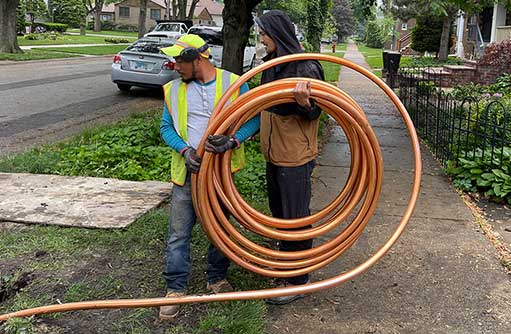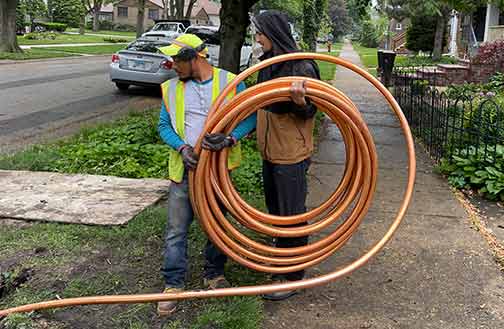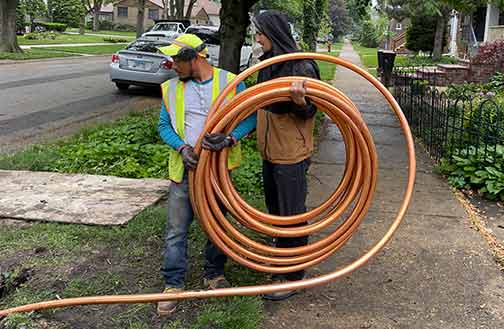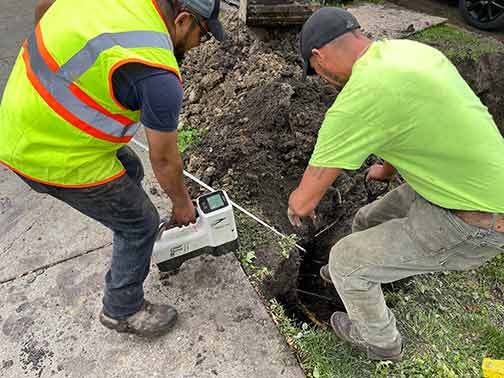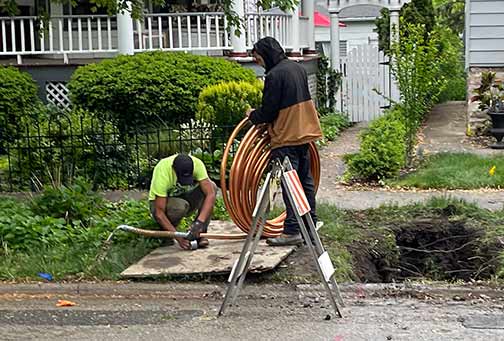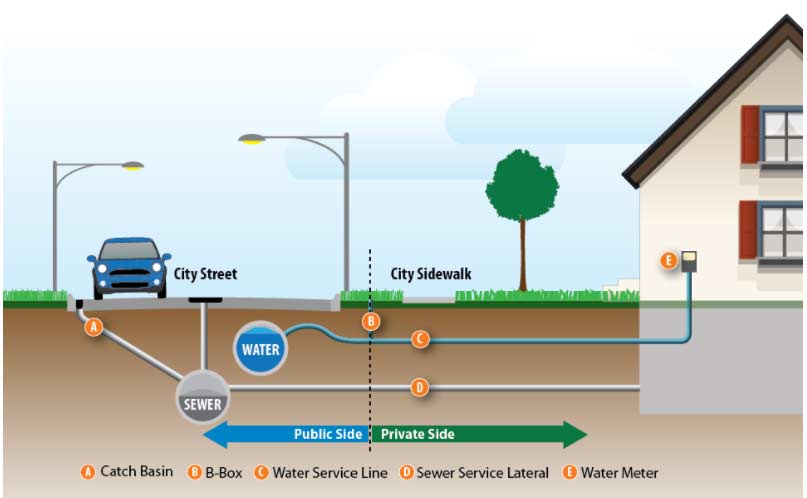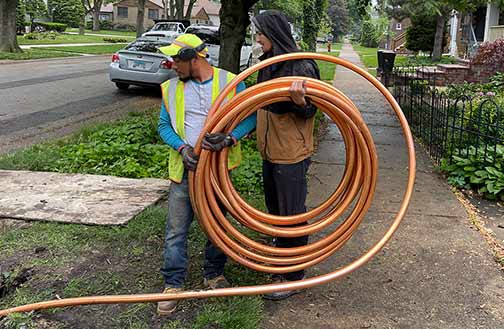Replacing a main water line is a complex and important task that requires careful planning and execution. In Chicago, where the infrastructure is aging, it becomes even more crucial to ensure that the main water line is functioning properly to avoid water leaks, contamination, and other issues. In this article, we will explore what is involved in replacing a main water line in Chicago, from the initial assessment to the final installation.
The Importance of Main Water Line Replacement
Before delving into the details of the replacement process, it is essential to understand why replacing a main water line is necessary. The main water line is responsible for supplying clean water to households, businesses, and public facilities. Over time, water lines can deteriorate due to various factors such as corrosion, damage from tree roots, or shifting soil. When a main water line becomes compromised, it can lead to reduced water pressure, water discoloration, or even complete water outage.
By replacing a main water line, the water supply can be restored to its optimal condition, ensuring that residents of Chicago have access to clean and reliable water for their daily needs. Additionally, replacing an old and inefficient water line can also improve the overall efficiency of the water distribution system, reducing water waste and saving costs in the long run.
The Process of Replacing a Main Water Line
Replacing a main water line in Chicago involves several steps that must be followed to ensure a successful and durable installation. Let’s take a closer look at the process:
1. Initial Assessment
The first step in replacing a main water line is to conduct an initial assessment of the existing infrastructure. This assessment involves inspecting the current water line, identifying any potential issues or damages, and determining the scope of the replacement project. A professional plumber or utility company will typically perform this assessment to gather the necessary information for planning the replacement.
2. Obtaining Permits
Replacing a main water line in Chicago requires obtaining the appropriate permits from the local authorities. These permits ensure that the replacement project complies with building codes and regulations. The plumber or utility company responsible for the replacement will handle the permit application process, ensuring that all necessary paperwork is filed and approved before the work begins.
3. Temporary Water Supply Arrangements
During the main water line replacement, it is crucial to ensure that residents and businesses in the affected area still have access to water. Temporary water supply arrangements need to be made to avoid any disruptions in water service. This may involve setting up temporary water lines or utilizing alternative water sources while the replacement is in progress.
4. Excavation
Once the necessary permits are obtained and temporary water supply arrangements are in place, excavation work can begin. This step involves digging trenches along the path of the existing water line to expose it for removal. Excavation can be a labor-intensive process, requiring heavy machinery and skilled workers to ensure safe and efficient digging.
5. Water Line Removal
Once the old water line is exposed through excavation, it can be removed. This process may involve cutting and disconnecting the old pipes and fittings, ensuring that all components are properly disconnected and safely disposed of. Care must be taken during this step to avoid any damage to surrounding structures or utilities.
6. New Water Line Installation
After the old water line is removed, the new water line can be installed. The new line is always replaced with type-k copper to ensure longevity and resistance to corrosion. The new line is carefully laid out and connected, with proper fittings and joints to guarantee a secure and leak-free installation.
7. Pressure Testing and Inspection
Once the new water line is installed, it undergoes pressure testing to ensure its integrity. This involves pressurizing the line and checking for any leaks or weaknesses. Additionally, the replacement project may be subject to inspection by relevant authorities to ensure compliance with building codes and regulations.
8. Backfilling and Site Restoration
After passing the pressure testing and inspection, the excavated trenches are backfilled with soil or other appropriate materials. The site is then restored to its original condition as closely as possible, ensuring that any disturbed landscape features are reinstated. This step aims to minimize any disruption caused by the replacement process and restore the area to its pre-replacement state.
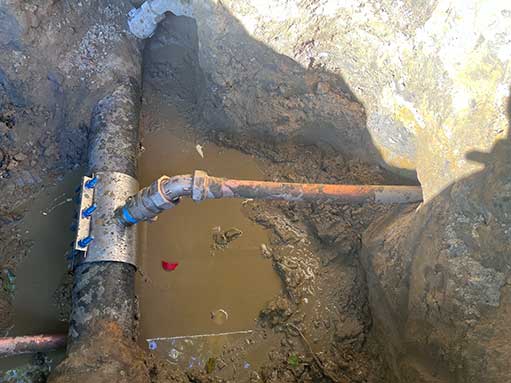
When undertaking such a project in Chicago, it is crucial to choose the right professionals who are licensed, insured, and experienced in main water line replacement.
Choosing the Right Professionals
Replacing a main water line is a complex task that requires the expertise and experience of qualified professionals. When undertaking such a project in Chicago, it is crucial to choose the right professionals who are licensed, insured, and experienced in main water line replacement.
Before selecting a plumber or utility company, it is advisable to research their credentials and check customer reviews and references. It is also beneficial to obtain multiple quotes to compare prices and services.
In Conclusion
Replacing a main water line in Chicago is a significant undertaking that requires careful planning, skilled execution, and compliance with regulations. By ensuring the proper replacement of the main water line, residents can enjoy reliable and clean water for their daily needs. It is essential to work with qualified professionals and obtain the necessary permits to ensure a successful and durable installation. With the aging infrastructure in Chicago, investing in main water line replacement is crucial for maintaining a reliable and efficient water supply system.
Interested in having your main water line replaced in Chicago or Suburbs? Contact us below!
